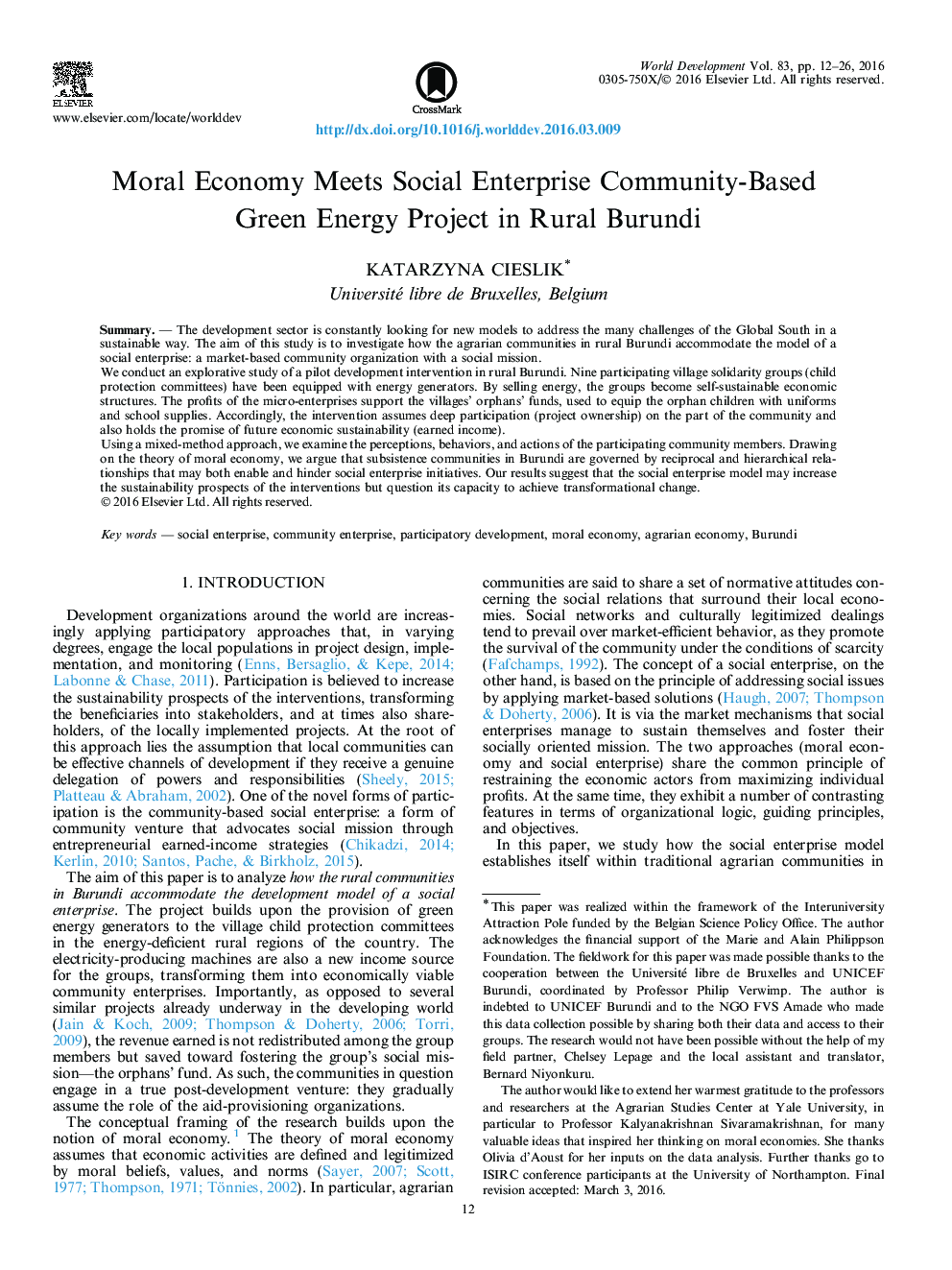| Article ID | Journal | Published Year | Pages | File Type |
|---|---|---|---|---|
| 7392671 | World Development | 2016 | 15 Pages |
Abstract
Using a mixed-method approach, we examine the perceptions, behaviors, and actions of the participating community members. Drawing on the theory of moral economy, we argue that subsistence communities in Burundi are governed by reciprocal and hierarchical relationships that may both enable and hinder social enterprise initiatives. Our results suggest that the social enterprise model may increase the sustainability prospects of the interventions but question its capacity to achieve transformational change.
Related Topics
Social Sciences and Humanities
Economics, Econometrics and Finance
Economics and Econometrics
Authors
Katarzyna Cieslik,
